Text
Understanding the Business Process of a Hotel: A Guide to Effective Hotel Business Planning

Hotel business planning involves a series of coordinated steps that ensure smooth operations, enhance guest experiences, and drive profitability.
The Hotel Business Process Explained
The business process of a hotel encompasses various interconnected functions that work together to deliver exceptional guest experiences and achieve business goals.
From reservations to housekeeping, each department plays a vital role in the overall operation. Here’s a comprehensive look at the main components of the hotel business process.
1. Reservation Management
Reservation management is the starting point of the hotel business process. This involves handling bookings from multiple channels, including the hotel’s website, third-party travel agencies, and direct calls.
Effective hotel business planning ensures that the reservation system is efficient, user-friendly, and integrated with other hotel management systems.
2. Front Desk Operations
The front desk is the hotel’s nerve center, responsible for check-ins, check-outs, and guest inquiries. Streamlined front desk operations are essential for providing a seamless guest experience.
This includes efficient handling of guest registrations, room assignments, and payments. Advanced hotel business planning incorporates technology solutions such as property management systems (PMS) to automate and enhance front desk tasks.
3. Housekeeping and Maintenance
Housekeeping and maintenance are critical for ensuring guest satisfaction. Clean and well-maintained rooms are a top priority for guests. The housekeeping department is responsible for cleaning rooms, replenishing supplies, and ensuring overall cleanliness.
Maintenance staff handles repairs and upkeep of the hotel’s infrastructure. Effective hotel business planning schedules regular maintenance and housekeeping tasks to maintain high standards.
4. Food and Beverage Services
For hotels offering dining options, food and beverage services are a significant part of the business process. This includes managing restaurants, bars, room service, and catering for events.
Hotel business planning in this area focuses on menu planning, inventory management, quality control, and customer service. Utilizing a hotel management system can streamline these operations and improve efficiency.
5. Sales and Marketing
Sales and marketing are crucial for attracting guests and driving revenue. This involves developing marketing strategies, managing online presence, engaging with customers on social media, and running promotional campaigns.
Effective hotel business planning ensures that marketing efforts are targeted and measurable, leveraging tools like customer relationship management (CRM) systems to track and analyze campaign performance.
6. Financial Management
Financial management is at the core of the hotel business process. This includes budgeting, forecasting, revenue management, and financial reporting.
Implementing robust financial management tools as part of hotel business planning ensures accurate tracking and analysis of financial data.
7. Guest Experience Management
Providing exceptional guest experiences is the ultimate goal of the hotel business process. This involves understanding guest preferences, addressing their needs promptly, and ensuring a comfortable stay.
Effective hotel business planning includes collecting and analyzing guest feedback to continually improve services. Personalization and attention to detail can significantly enhance guest satisfaction and loyalty.
8. Human Resource Management
Human resource management is essential for recruiting, training, and retaining staff. The success of the hotel business process relies heavily on a well-trained and motivated team.
Integrating Technology in Hotel Business Planning
Technology plays a vital role in modern hotel business planning. Integrating advanced systems such as PMS, CRM, and revenue management software can streamline operations, improve efficiency, and enhance the guest experience.
Technology also enables data-driven decision-making, helping hoteliers to optimize their business processes and stay competitive.
Conclusion
Hotel business planning is essential for streamlining these processes, ensuring operational efficiency, and enhancing guest satisfaction. By integrating technology and adopting strategic planning practices, hoteliers can optimize their business operations and drive long-term success.
Embrace comprehensive hotel business planning today to stay ahead in the dynamic hospitality industry.
1 note
·
View note
Text
What is the strategic planning of a hotel?

What is the strategic planning of a hotel?
Strategic planning in a hotel involves a comprehensive approach to setting long-term goals, developing actionable plans, and ensuring the alignment of resources to achieve the desired outcomes.
Utilizing a Hotel Planning Solution can greatly enhance this process by providing tools and insights to streamline and optimize various aspects of the hotel’s operations. Here are the key elements of strategic planning in a hotel:
Market Analysis: Hotel Planning Solution can provide detailed analytics and data to identify trends and opportunities, helping to position the hotel effectively within the market.
Vision and Mission Development: Defining a clear vision and mission statement sets the direction for the hotel's future. This includes outlining the hotel's core values, service standards, and long-term aspirations.
Goal Setting: Establishing specific, measurable, achievable, relevant, and time-bound (SMART) goals is essential for strategic planning. These goals might include financial targets, occupancy rates, guest satisfaction scores, and market share.
Resource Allocation: Effective allocation of resources, including human resources, financial capital, and physical assets, is critical. A Hotel Planning Solution can optimize scheduling, budget management, and inventory control.
Marketing and Sales Strategy: Developing a robust marketing and sales strategy is key to attracting and retaining guests. This involves identifying target markets, creating promotional campaigns, and leveraging digital marketing channels.
Operational Efficiency: Improve efficiency and reduce costs is a fundamental aspect of strategic planning. This includes optimizing processes in areas such as housekeeping, maintenance, food and beverage services, and front desk operations.
Guest Experience Enhancement: Ensuring a high level of guest satisfaction is vital for repeat business and positive reviews. Strategic planning should focus on enhancing the guest experience through personalized services, loyalty programs, and quality improvements.
Risk Management: Identifying potential risks and developing mitigation strategies is a key component of strategic planning. This includes assessing risks related to market fluctuations, operational disruptions, and regulatory changes. A Hotel Planning Solution can provide risk assessment tools and support the development of contingency plans.
Financial Planning: Creating a detailed financial plan that includes budgeting, forecasting, and financial analysis is essential for sustainability and growth.
Monitoring and Evaluation: Monitoring and evaluation of the strategic plan's implementation are necessary to ensure that goals are being met and adjustments are made as needed.
Hotel Planning Solution, hotels can enhance their strategic planning processes, ensuring that all aspects of the business are aligned and working towards common objectives.
1 note
·
View note
Text
What are hospitality solutions?
Hotel management within the Hotel & Hospitality Industry, maximizing revenue requires a multifaceted approach that addresses various revenue streams and operational aspects. Let's delve into key strategies for optimizing revenue across different areas:
Room, Rental & SPA Revenue: The cornerstone of hotel revenue, optimizing room revenue involves implementing dynamic pricing strategies, leveraging revenue management systems, and maximizing occupancy rates through effective distribution channels. Additionally, capitalizing on rental services such as event spaces and spa facilities can further boost revenue streams.
Food, Beverages, and Mini-Bar Revenue: Dining experiences play a significant role in guest satisfaction and revenue generation. Enhance F&B revenue by curating enticing menus, offering diverse dining options, and implementing upselling techniques. Effective management of mini-bars and room service can also contribute to incremental revenue.
Payroll Planning: Efficiently managing payroll expenses is essential for maintaining profitability. Implement payroll planning strategies that align staffing levels with demand fluctuations, optimize scheduling to minimize overtime costs, and utilize workforce management tools for accurate payroll forecasting.
Headcount & Hiring Assumptions: Align headcount and hiring assumptions with business objectives and financial goals. Conduct thorough workforce analysis to determine staffing requirements across departments, considering factors such as seasonality, occupancy rates, and guest service standards.
Consolidated Financial Disclosures & Reporting: Implement robust financial reporting systems to consolidate revenue data from various sources and provide insights into overall performance. Utilize analytics tools to track key performance indicators (KPIs), monitor revenue trends, and identify areas for improvement.
By adopting a holistic approach to revenue management and operational planning, hotels can optimize revenue streams, control expenses, and enhance overall profitability. With careful attention to detail and the implementation of innovative strategies, hotels can thrive in an increasingly competitive market landscape.

1 note
·
View note
Text
How to create a business plan for a hotel?
A well-defined Hotel Business Planning Solution acts as your roadmap to success, guiding your hotel from concept to a thriving business. Here's a breakdown of the key steps involved:
1. Define Your Vision and Target Market:
Concept: Establish your hotel's unique selling proposition (USP). Are you a luxury boutique hotel, a family-friendly resort, or a budget-conscious option?
Target Audience: Identify your ideal guest. Consider demographics, travel habits, and what amenities would resonate with them.
2. Research and Analyze:
Market Analysis: Research current hospitality trends, competitor landscape, and local market saturation.
Financial Feasibility: Estimate startup costs, operational expenses, and projected revenue streams.
3. Craft Your Hotel Business Plan:
Executive Summary: Briefly introduce your hotel, its USP, and financial goals.
Company Description: Detail your hotel's concept, target market, and management team's experience.
Market Analysis: Present your market research findings and competitor analysis.
Service Offerings: Outline the specific services and amenities your hotel will provide.
Marketing Strategy: Describe your plan to reach your target audience and establish your brand.
Management Plan: Detail your operational structure, staffing plan, and guest service philosophy.
Financial Projections: Present realistic financial forecasts, including revenue projections, expense breakdowns, and break-even analysis.
Tools and Resources:
Consider using Hotel Business Planning Solution software to streamline the planning process. These tools can assist with financial modeling, competitor analysis, and creating professional presentations.
Numerous resources are available online and in libraries to guide you through business plan creation. Look for templates specifically designed for the hotel industry.
Beyond the Basics:
Sustainability: Incorporate eco-friendly practices into your operations to attract environmentally conscious guests.
Technology Integration: Leverage technology to enhance guest experience, such as self-service kiosks and mobile check-in options.

1 note
·
View note
Text
What software do airlines use for scheduling?
Airlines rely on specialized software known as Airline Scheduling Software to efficiently manage their flight schedules. This software automates the process of creating and optimizing flight schedules, taking into account various factors such as aircraft availability, crew availability, airport slot availability, maintenance requirements, and passenger demand.
Airline Scheduling Software enables airlines to optimize their flight schedules to maximize efficiency, minimize costs, and improve overall operational performance. It helps airlines to balance their flight schedules to meet passenger demand while maximizing aircraft utilization and crew productivity.
Additionally, Airline Scheduling Software allows airlines to easily make adjustments to schedules in response to changing circumstances such as weather disruptions, air traffic congestion, or unforeseen events. This flexibility ensures that airlines can adapt quickly to maintain reliable and efficient operations.

0 notes
Text
What software do airlines use for Route planning?
Airlines utilize specialized software known as Airline Route Planning Software for efficient and strategic route planning. This software integrates various factors such as aircraft performance, airspace regulations, weather conditions, fuel efficiency, passenger demand, and operational costs to optimize route selection.
1 note
·
View note
Text
What is financial planning in aviation?
Financial planning in aviation involves the strategic management of financial resources within an airline company to achieve profitability and sustainability. This process is facilitated by leveraging specialized software known as Airline Financial Planning Solutions. These solutions enable airlines to:
Budget effectively by allocating funds to various operational expenses, including fuel, maintenance, staffing, and marketing.
Forecast future financial performance based on historical data, market trends, and operational factors to anticipate revenue and expenses accurately.
Optimize revenue management strategies by dynamically adjusting ticket pricing, seat inventory, and ancillary services to maximize revenue generation.
Control costs through efficient resource utilization, supplier negotiations, and implementation of cost-saving measures.
Make informed investment decisions regarding fleet expansion, technology upgrades, and infrastructure development to support growth objectives.
Manage financial risks such as fuel price fluctuations, currency exchange rate changes, and regulatory compliance to protect the airline's financial stability.
Ensure compliance with financial regulations, accounting standards, and industry requirements to maintain transparency and accountability in financial reporting.

#FinancialIntelligence#AirlineOperations#FinancialStability#AviationBudgeting#FinancialStrategy#AirlineEconomics#AviationFinance
1 note
·
View note
Text
What software do airlines use for flight planning?
Airlines often utilize sophisticated software known as Airline Planning Solutions for flight planning.
These solutions integrate various factors like weather, air traffic control restrictions, fuel consumption, and aircraft performance data.
#AirlinePlanningSolution software assists in optimizing flight routes to minimize fuel costs and reduce flight time while ensuring safety and efficiency.
It also helps in determining the most cost-effective routes, considering factors like airspace fees and navigation charges.
Additionally, these solutions aid in scheduling crew and aircraft rotations to maximize operational efficiency and minimize disruptions.
1 note
·
View note
Text
What is the airline planning process?

The airline planning process is a multifaceted endeavor that ensures smooth operations and profitability. Here's a breakdown of the key stages, incorporating Airline Financial Planning Solutions (#AirlinePlanning #FlightNetworkOptimization):
Strategic Planning:
This sets the overall direction for the airline, considering factors like market trends, competition, and fleet development. Financial planning solutions help assess the viability of different strategies and forecast future revenue and expenses.
Network Planning & Route Development:
This involves deciding which routes to fly, how often, and with what type of aircraft. Here, software helps analyze passenger demand, airport fees, and potential profitability for various routes.
Schedule Development:
Flight schedules are meticulously crafted to optimize aircraft utilization, crew scheduling, and passenger convenience.
Fleet Planning:
Airlines need to determine the right mix of aircraft types (e.g., narrow-body vs. wide-body) to efficiently serve their route network and meet future demand. Financial planning tools help assess the cost-effectiveness of different fleet options.
Pricing & Revenue Management:
Airlines use sophisticated software to set ticket prices that maximize revenue while considering factors like demand fluctuations, competitor pricing, and market conditions.
Operational Planning:
This involves detailed planning for ground handling, maintenance, crew scheduling, and ensuring all aspects of flight operations run smoothly.
It's important to note that these stages are interconnected. Airline planning is an ongoing process with constant adjustments based on market conditions, competitor activity, and internal performance.
1 note
·
View note
Text
What software do airlines use for flight planning?
Airline Route Planning Software ( #FlightPlanning #RouteOptimization):
This software helps airlines optimize flight paths considering factors like distance, weather, fuel efficiency, air traffic control restrictions, and flight time.
Examples include FSS Flight Planning and OAG Flight Availibility.
Flight Dispatch Software ( #FlightDispatch #PreFlightPlanning):
This software assists dispatchers in creating detailed flight plans considering real-time weather data, NOTAMs (Notices to Airmen), runway availability, and weight and balance calculations.
Electronic Flight Bag (EFB) Software ( #EFB #DigitalFlightDeck):
Pilots use EFB software on tablets in the cockpit to access flight plans, navigation charts, weather information, and other operational data during the flight.
Additionally, airlines may utilize:
Crew Management Software ( #CrewManagement #AirlineOperations):
This software helps airlines manage crew scheduling, training, and qualifications.
Maintenance & Engineering Software ( #AircraftMaintenance #MRO):
This software helps airlines track aircraft maintenance schedules, parts inventory, and ensure airworthiness.

1 note
·
View note
Text
Who are BOARD Implementation Partners?
Board Implementation Partners (#BoardInternational #DecisionMaking) are consulting firms with expertise in implementing and managing Board, a comprehensive platform for Financial Planning and Analysis (FP&A) and other business intelligence tasks.
An Implementation Partner is a consulting firm or service provider specializing in helping businesses implement and configure software solutions.
In the context of FP&A, they might specialize in Enterprise Performance Management (EPM) software deployments.
They bridge the gap between the software vendor and the client, ensuring a smooth and successful integration process.
Key functions of an Implementation Partner:
Understanding Business Needs: They analyze your current FP&A processes and identify areas for improvement through the new system.
System Configuration & Customization: They configure the software to align with your specific workflows and data needs. This might involve customizing reports, dashboards, and functionalities.
Data Migration & Integration: They assist in migrating existing financial data to the new system and ensure seamless integration with other relevant systems.
Change Management & Training: They help develop training programs and guide users through the transition to the new FP&A platform.
Go-Live Support & Optimization: They provide ongoing support after launch to address any issues and help optimize the system for continued effectiveness.
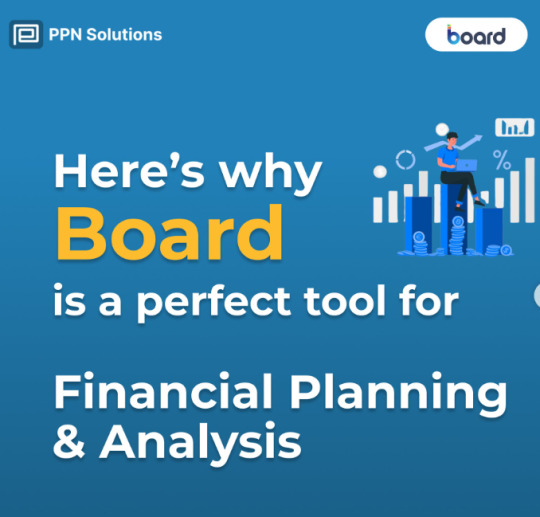
1 note
·
View note
Text
What is the SAP implementation process?
SAP Implementation Process: A Step-by-Step Guide (#SAPImplementation #SAPBusinessSolutions)
SAP implementation involves a series of phases to ensure a smooth transition to your new SAP Business Solution. Here's a simplified breakdown:
Project Preparation (#SAPProjectPrep):
Define project goals, scope, and timeline.
Assemble your implementation team with business and IT specialists.
Business Blueprinting (#SAPPlanning):
Analyze current business processes (as-is) to identify areas for improvement.
Design the future state (to-be) leveraging SAP functionalities to optimize workflows.
Realization (#SAPRealization):
Configure the SAP system based on the blueprint, potentially involving customization.
Develop and test interfaces for data migration from existing systems.
Train your team on how to use the new SAP system effectively.
Integration Testing (#SAPTesting):
Conduct thorough testing to ensure all functionalities work seamlessly within SAP and with external systems.
Identify and resolve any bugs or integration issues.
Final Preparation (#SAPGoLive):
Finalize data migration and system configuration.
Conduct user acceptance testing (UAT) with key users.
Go-Live & Support (#SAPGoLive #SAPSupport):
Launch the new SAP system and transition your business operations.
Provide ongoing support to address user issues and optimize system performance.
Remember: This is a general overview. The specific implementation process may vary depending on your unique business needs and chosen SAP modules.
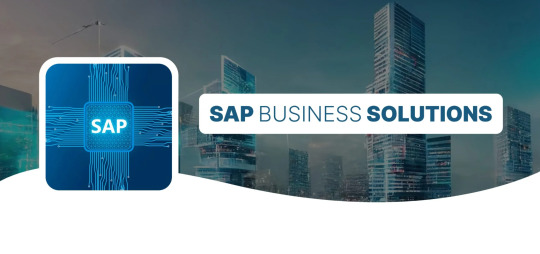
#SAPBusinessSolutions#SAPImplementation#SAPProjectPrep#SAPPlanning#SAPRealization#SAPSupport#SAPGoLive#SAPTesting
2 notes
·
View notes
Text
Is it difficult to become SAP Consultant?
Technical Skills for SAP Consultants ( #SAPTechnical #ABAP):
Both technical and non-technical skills are essential.
Functional consultants might not require extensive coding but need a strong grasp of business processes and SAP integration.
Technical consultants have a strong foundation in SAP systems, configuration tools, and potentially programming languages like ABAP.
Difficulty of SAP Consulting (#SAPCareers ):
Yes, SAP consulting can be demanding. SAP Business Solutions are complex, requiring consultants to understand various business processes and how SAP can optimize them.
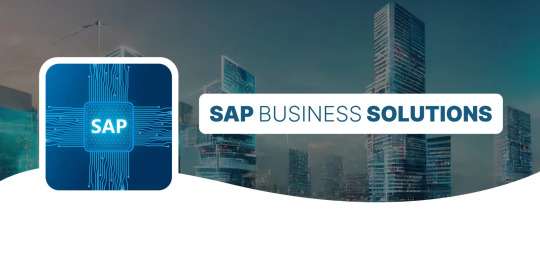
1 note
·
View note
Text
What is SAP industry cloud solutions?
SAP Cloud Solutions are a specific category of SAP offerings that are designed to run on the cloud. This means businesses can access and use the software through an internet connection, eliminating the need for extensive on-premise infrastructure.
These solutions can be deployed on-premise (your own servers) or in the cloud (remote servers managed by a provider). SAP Business Solutions are known for their comprehensiveness, covering functions like finance, human resources, customer relationship management, and more.
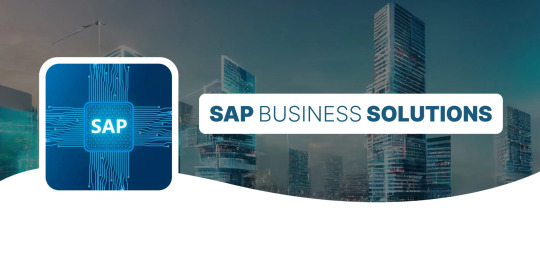
1 note
·
View note
Text
Zoho Experts: Get the Most Out of Your Zoho Tools
Zoho offers a powerful suite of business applications, but mastering them all can be a challenge. That's where Zoho experts come in!
Who are Zoho Experts?
Zoho experts are individuals or companies with in-depth knowledge and experience with Zoho products. They can help you with:
Implementation: Setting up and configuring Zoho apps to fit your specific needs. Customization: Tailoring Zoho tools to your workflows and processes. Training: Empowering your team to use Zoho effectively. Troubleshooting: Solving any issues you encounter with Zoho.
Benefits of Working with a Zoho Expert:
Save Time & Money: Avoid costly mistakes and get up and running quickly. Boost Efficiency: Optimize your Zoho usage to streamline your operations. Unlock Potential: Discover advanced features and functionalities you might not know about.
Finding a Zoho Expert:
Zoho Partner Program: Connect with certified Zoho consultants worldwide through the Zoho Partner Program. Freelance Marketplaces: Find Zoho specialists on platforms like Upwork.
Invest in your Zoho success! By working with a Zoho expert, you can unlock the full potential of Zoho and take your business to the next level.

1 note
·
View note
Text
Is SAP Consulting a Good Career?:
SAP Consulting offers a lucrative career path with high demand for skilled professionals.
It provides opportunities for continuous learning and growth, as SAP technology evolves and new projects emerge.
SAP consultants often enjoy competitive salaries and benefits, along with the chance to work with leading companies across industries.
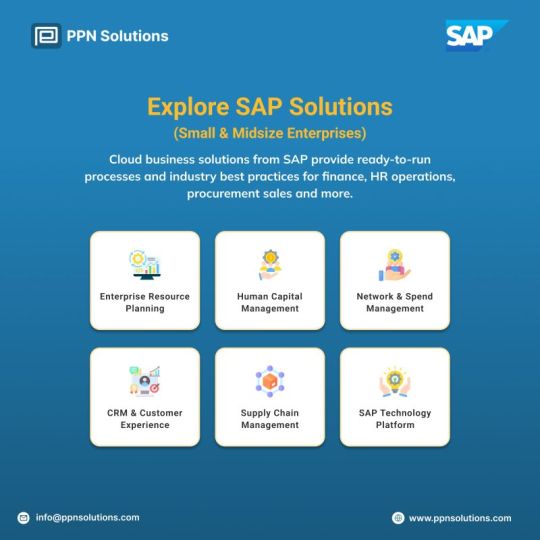
1 note
·
View note
Text
What is Zoho famous for?
Zoho Expert:
A Zoho expert is an individual or professional with extensive knowledge and experience in utilizing Zoho's suite of products and solutions.
They are proficient in implementing, customizing, and optimizing Zoho's cutting-edge solutions to meet the specific needs of businesses.
Zoho experts provide consulting, training, and support services to help businesses maximize the value of Zoho technology and achieve their goals.
Zoho's Cutting Edge Solutions:
Zoho is famous for its comprehensive suite of cloud-based business applications, covering CRM, finance, marketing, HR, and more.
Zoho's solutions are known for their user-friendly interface, robust features, and seamless integration, offering businesses a holistic platform to manage their operations efficiently.
Zoho is renowned for its commitment to innovation, regularly introducing new features and updates to stay ahead of industry trends and meet evolving customer needs.
1 note
·
View note